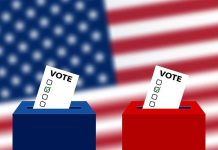
South Carolina’s Supreme Court blocks public funding for private schools, sparking debate over educational priorities.
At a Glance
- South Carolina’s law allowing public funds for private school tuition ruled unconstitutional.
- Nearly 3,000 students received $1,500 each under the program before the ruling.
- Ruling prohibits using “Education Scholarship Trust Funds” for private school tuition or fees.
- Decision reflects a commitment to securing robust support for public education.
Court Ruling Upholds Constitutional Principles
In a decisive 3-2 ruling, the South Carolina Supreme Court has struck down a law that allowed parents to use taxpayer money for private school tuition. The court determined that this practice violates the state constitution, specifically a clause prohibiting public funds from directly benefiting religious or private educational institutions. This ruling represents a significant setback for school choice advocates and underscores the state’s commitment to maintaining a robust public education system.
Justice Gary Hill, in his first major opinion since joining the court, emphasized the historical context of the 1972 constitutional amendment ensuring free public education for all children. He wrote, “A parent who chooses to use a scholarship to pay their child’s private school tuition is undoubtedly using public funds to provide a direct benefit to the private school.”
Impact on Families and Future Plans
The ruling has immediate consequences for nearly 3,000 students who have already received $1,500 each under the program. While these families are not required to repay the funds if used for private school tuition or fees, the decision disrupts the school year for those who have already utilized the vouchers. The overturned law would have eventually provided up to $6,000 in vouchers for up to 15,000 students annually, targeting families earning under approximately $120,000.
Republican State Superintendent of Education Ellen Weaver and Gov. Henry McMaster expressed disappointment over the ruling’s impact on low-income families. Supporters of the law may consider appealing or attempting to amend the constitution, though achieving a majority vote could prove challenging.
Dissenting Opinions and Broader Implications
Chief Justice John Kittredge dissented, arguing that the ruling undermines the Legislature’s broad policy-making powers. “The literary style of the majority opinion may be appealing, but its underlying rationale is anathema to the rule of law,” Kittredge wrote. He compared the voucher program with other state-funded educational initiatives like college scholarships and pre-kindergarten programs. However, Justice Hill countered that those programs have structures different from those in the voucher system.
This ruling is part of a broader national debate on school choice, with at least 16 states having similar voucher programs. It follows a comparable decision by Kentucky’s Supreme Court, which also struck down a state voucher program. The South Carolina case focused on the state’s constitutional clause prohibiting public funds from directly benefiting religious or private educational institutions, a principle that dates back to the 1972 constitutional amendment ensuring free public education for all children.
Looking Ahead
While the ruling blocks the use of public funds for private school tuition, it does not eliminate the entire Education Scholarship Trust Fund. Funds can still be used for therapy, tutoring, and other educational services. This distinction may provide a framework for future educational support programs that do not directly benefit private institutions.
The Palmetto Promise Institute criticized the ruling, highlighting inconsistencies with public funding for private preschools and colleges. In response to the court’s decision, House Freedom Caucus Chairman Rep. Jordan Pace plans to reintroduce legislation for a refundable tax credit to offset private school tuition costs, signaling that the debate over school choice in South Carolina is far from over.
As the state grapples with the implications of this ruling, it remains to be seen how legislators and education advocates will navigate the complex landscape of public education funding and school choice in the future.
Sources:
- SC Supreme Court blocks public funding of private schools, disappointing state leaders
- Court won’t allow public money to be spent on private schools in South Carolina
- Court Strikes Down South Carolina School Voucher Program
- SC Supreme Court blocks public funding of private schools, disappointing state leaders
- Court won’t allow public money to be spent on private schools in South Carolina
- South Carolina Supreme Court ruling strikes down state-funded vouchers to private schools
- SC Supreme Court finds program that uses public funds for private school violates constitution
- SC Supreme Court rules part of state’s school voucher program unconstitutional















